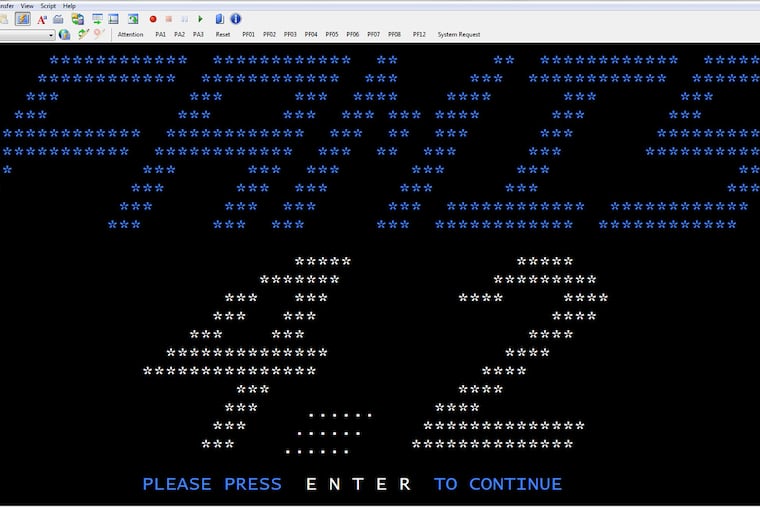Philly's 35-year-old accounting software is somehow still kicking
Bill Green was mayor when Philadelphia first purchased FAMIS accounting software in 1981. Apple's Macintosh computer was yet to be designed. Microsoft Windows was still four years away.

Bill Green was mayor when Philadelphia first purchased FAMIS accounting software in 1981. Apple's Macintosh computer was yet to be designed. Microsoft Windows was still four years away.
Thirty-five years later — the equivalent of a geologic era in computing — the Mac is part of history and Windows is in its 10th iteration. Philadelphia still relies on FAMIS: Financial Accounting and Management Information System, to manage the city $4 billion annual expenditures and revenues.
There have been six mayors since FAMIS was installed and much talk of replacing it. But so far, no one has pulled the plug. The Kenney administration says it will consider FAMIS among its replacement projects for the new year.
"We're in this weird year where we are transitioning too, so we didn't want to do anything that breaks FAMIS. We don't want to be responsible for breaking FAMIS," city budget director Anna Adams said.
Not surprisingly, given its age, FAMIS can be a bit difficult at times.
For example, since 2013, Ciber Inc. has been under contract with the city to replace the city's payroll and benefits systems, which are also a few decades old. A retired city Division of Technology employee was hired back as a "FAMIS consultant" to help integrate the new payroll and benefits systems with FAMIS.
A new budget system, however, did not work well with FAMIS and was discontinued. Instead the city went back to using Excel spreadsheets for its 2,300-page budget.
"It's hard to integrate a budget system into a really old accounting system and that system is really the critical thing for everything to be based on," Adams said. "So, you don't want to mess with anything."
Adams said that there are some cities, such as San Francisco, that also use the old technology for accounting. And there are others that have moved on and upgraded to more high tech accounting tools.
"Some cities have built their own systems and their budget offices have their own IT teams," Adams said, adding that such custom works costs millions. "Clearly, in Philadelphia we're not resourcing things in the same way."
Eventually FAMIS will be replaced, she said. At that point, the city might be able to build a budget module off a new accounting system.
Mike Dunn, city spokesman, said that the Nutter administration had estimated the replacement of FAMIS and linked systems at $50 million. For comparison, he said, the entire current IT capital budget over six years is $48.3 million.
Although the city couldn't give an exact cost to maintaining FAMIS, Dunn said "it is cheap to operate."
The software is owned by the city, there's no annual licensing fee, and the manpower cost is shared across many other systems, Dunn said.
So, the advantage to keeping FAMIS is that it's cheap to operate. The disadvantage is that because FAMIS is a "mainframe system," it doesn't give the city much flexibility and doesn't have query capabilities that more modern systems have, Dunn said. It also still has the black screen and blue and white block letters.
Until FAMIS is replaced, everything in the city needs to "build off the accounting system," Adams said. The accounting system that is as old as Adams, 35.
"I am the same age as FAMIS and I like to think of that," Adams said in a recent interview.
Adams has a child of her own already, so shouldn't FAMIS have an heir? She laughed when asked.
215-854-5520
@InqCVargas